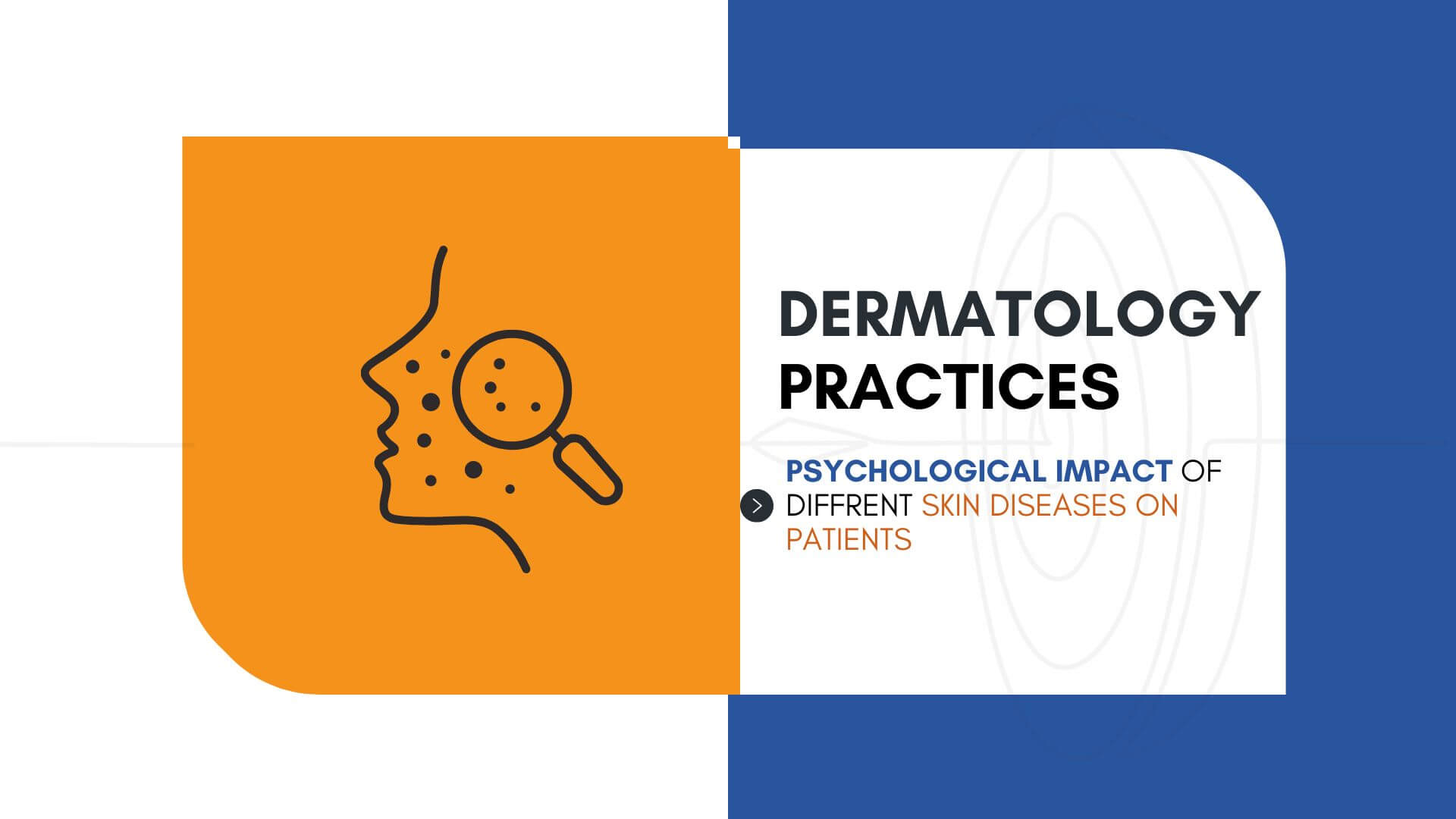Psychological Impact Of Different Skin Diseases On Patients

Psychological Impact Of Different Skin Diseases On Patients
Most skin diseases do not pose a serious threat to the patients’ lives. Their impact is external and most patients are able to live with their respective disorders. However, many skin conditions have a serious impact on the patients’ mental health.
Attributes like confidence, self-esteem, and social behavior are often linked with how an individual sees and perceives themselves. Skin diseases hamper this perception as they no longer let you look normal. This has a significant psychological impact on the patients as they start seeing them differently from “normal” human beings.
An important way to tackle these issues is to have complete knowledge about different skin diseases and their implications. Agencies excelling in healthcare marketing for dermatologists often help healthcare professionals spread awareness about different skin disorders, their symptoms, and their remedies. Knowing these conditions can help you find a way out and calm the anxiety surrounding the skin disease you are suffering from.
Let us understand the psychological impact of skin disease by discussing a few common conditions:
Acne
Acne is arguably the most common and prevalent skin condition that results in multiple breakouts on your skin. These breakouts can be composed of blackheads, whiteheads, redness, painful cysts, or nodules. Acne can affect almost any region of your body, especially the face, shoulders, and upper back.
The biggest complainers of acne are people belonging to the millennial and Gen-Z generations. Teenagers and young adults aspire to have picture-perfect skin and issues like acne spoil this perception. Especially if acne appears before an important event in people’s lives, they tend to panic and start getting anxious regarding the way they look.
Vitiligo
Vitiligo is an auto-immune skin disease that leads to the development of white or colorless spots on your skin. It is caused due to the destruction or lack of melanocytes responsible for producing melanin, the pigment that gives color to your skin.
Dermatologists still have not been able to find a complete and precise cure for vitiligo. While they may manage the symptoms, most people suffering from vitiligo tend to live with the skin condition. The white and colorless spots on the skin make people feel different and alienated. Over time, the skin disease leads to a lack of confidence, anxiety, and even clinical depression. Vitiligo patients often avoid social gatherings due to the fear of being made fun of.
Cold Sore
Cold soreness is a condition characterized by the development of a red and painful blister near the patient’s mouth and lips. It looks worse and seems more prominent in people with lighter skin, making the blister more noticeable.
Like most skin conditions, cold sore makes people avoid social gatherings. Especially if an individual has a highly favorable perception of their appearance, such issues can make them feel anxious in no time!
Hives
Hives appear when your skin is exposed to one or more allergens. These are itchy and raised welts that stick out like a sore thumb on your skin. Depending on the patient’s skin and the allergen they are exposed to, hives can be round, small, red, or ring-shaped.
Hives often cause an itching sensation in the affected areas, making people extremely conscious when they are in public. Moreover, the welts appearing on their skin make them lose confidence when they meet others. In most cases, individuals do their best to hide these marks, often going out of their way to do so.
Eczema
Eczema is a common skin disease that results in the formation of white or yellow scaly patches that flake off when scratched. It makes the affected areas greasy, oily, and itchy. Eczema can also appear as a red rash in people with lighter skin. Excessive itching can also lead to loss of hair in the affected region.
People suffering from eczema are often very conscious about their condition in public. Uncontrollable itching in the affected regions while being in public often leads to embarrassment. The different look of people’s skin also leads to low self-confidence as they interact with their friends and peers.
Psoriasis
People often confuse eczema with psoriasis. Psoriasis is a skin condition that results in the formation of scaly, silvery, and sharp skin patches. Common areas affected by this condition include the scalp, knees, elbows, and lower back. The patches here are often itchy and get worse if the itching does not stop.
Psoriasis often results in people feeling self-conscious and underconfident about the way they look. As most cases involve dealing with sharp skin patches for a long period of time, it takes a massive toll on people’s psychological well-being. There is often a never-ending craving to look like “normal” people and get rid of the patches once and for all!
Lupus
Lupus is a skin disease that causes a scaly and disc-shaped rash on your skin that does not hurt or itch. The rash is often accompanied by headache, fatigue, swollen joints, or fever. Lupus commonly affects an individual’s forearms, shoulders, neck, or upper chest. It gets worse with prolonged exposure to sunlight.
Patients suffering from lupus tend to deliberately hide the rashes, often leading to embarrassment in public. They stop feeling comfortable in their skin and develop social anxiety if the condition is not treated on time. Lupus makes people avoid social gatherings and focus all their attention on how their skin looks to people around them.
The Final Word
These were a few important skin diseases and their psychological implications on patients. Even without a direct threat to an individual’s life, skin disease can complicate things for them. Dermatologists often meet patients with extremely low self-confidence and sky-high anxiety. This makes it important to deal with skin conditions with the precision and care they deserve.
If you have been suffering from any skin disease, make sure you remain mindful and do not give way to overthinking and panicking. Look for the right dermatologist and get yourself treated with the right procedures. In most cases, worrying about the problem only worsens it.

Blog Admin:
Ravinder Bharti
CEO & Founder - Public Media Solution
About: Ravinder Bharti is the Founder and CEO of Public Media Solution,
a leading
marketing, PR, and branding company based in India.